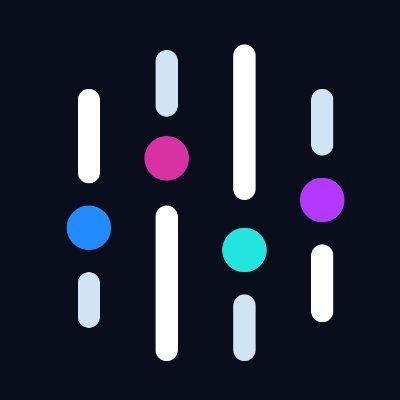Agentic AI Comparison:
Abacus AI vs BabyAGI
Introduction
This report provides a detailed comparison between BabyAGI and Abacus AI, two distinct agents in the AI landscape. The analysis covers key metrics: autonomy, ease of use, flexibility, cost, and popularity, offering insights for organizations or developers considering these platforms.
Overview
BabyAGI
BabyAGI is an open-source autonomous task management agent that leverages OpenAI and vector databases such as Chroma or Weaviate to execute and prioritize tasks. It is designed to autonomously generate, manage, and execute tasks based on dynamic outcomes, making it suitable for experimental and research-based AI automation applications.
Abacus AI
Abacus AI is a commercial AI platform geared toward enterprise needs, offering a variety of machine learning and generative AI capabilities. It supports a range of features including chatbots, predictive analytics, process/workflow automation, and visual tools for designing, deploying, and managing AI models. Abacus AI is positioned as a scalable, production-ready solution for diverse business cases.
Metrics Comparison
autonomy
Abacus AI: 7
Abacus AI automates the deployment and management of AI/ML models and workflows, but it typically expects more predefined boundaries and human input in configuration, making it less autonomous in creative task management than BabyAGI.
BabyAGI: 9
BabyAGI is built as an autonomous agent that continuously generates and executes tasks based on past results and a predefined objective, with minimal human intervention required, making autonomy one of its core differentiators.
BabyAGI's core design is focused on self-directed autonomous operation, whereas Abacus AI is more enterprise-focused, blending automation with manual oversight.
ease of use
Abacus AI: 9
Abacus AI offers ready-made templates, visual workflow tools, extensive documentation, webinars, and live online training. Its enterprise SaaS platform focuses on user-friendliness and accessibility for a variety of users.
BabyAGI: 5
As an open-source project primarily targeted at developers and researchers, BabyAGI requires technical setup and command-line usage. It lacks a polished UI and guided onboarding, which can pose barriers for non-technical users.
Abacus AI is significantly easier to use out of the box, especially for non-technical users, while BabyAGI requires coding experience and environment setup.
flexibility
Abacus AI: 8
Abacus AI provides robust flexibility through integrations with various AI/ML frameworks, support for custom models, and workflow automation. However, its flexibility is within the constraints of its enterprise features and commercial support.
BabyAGI: 7
BabyAGI's open-source nature allows for deep customization and potentially unlimited extensions as long as the user can code. It is highly adaptable for prototyping unique AI workflows.
BabyAGI offers maximum flexibility for developers able to work with code, while Abacus AI provides high flexibility within its commercial feature set, making it easier for teams needing production reliability.
cost
Abacus AI: 6
Abacus AI follows a commercial pricing model suitable for enterprises, which can get costly depending on the scale, support, and chosen features. No free or open-source tier is indicated.
BabyAGI: 10
BabyAGI is open-source and free to use, aside from any costs associated with the compute resources and cloud APIs (such as OpenAI) used by the agent.
BabyAGI's open-source status makes it essentially free aside from infrastructure, whereas Abacus AI’s advanced features come at a significant enterprise cost.
popularity
Abacus AI: 8
Abacus AI is recognized in the enterprise AI space, with a broader adoption base among organizations implementing AI at scale and offering well-documented support and training programs.
BabyAGI: 6
BabyAGI is well-known in the open-source and research AI communities, having gained attention for its novel autonomous agent capabilities. However, its adoption remains niche compared to mainstream enterprise solutions.
Abacus AI enjoys higher visibility in enterprise circles, while BabyAGI is primarily popular among open-source AI enthusiasts and researchers.
Conclusions
BabyAGI and Abacus AI cater to different segments of the AI ecosystem. BabyAGI excels in autonomy, cost, and deep customization for technically skilled users exploring task automation in research or experimental contexts. Abacus AI stands out in ease of use, enterprise scalability, and integrated support, making it suitable for businesses requiring robust, production-ready AI solutions. Organizations and developers should align their choice with their technical skills, project requirements, and desired support levels.

